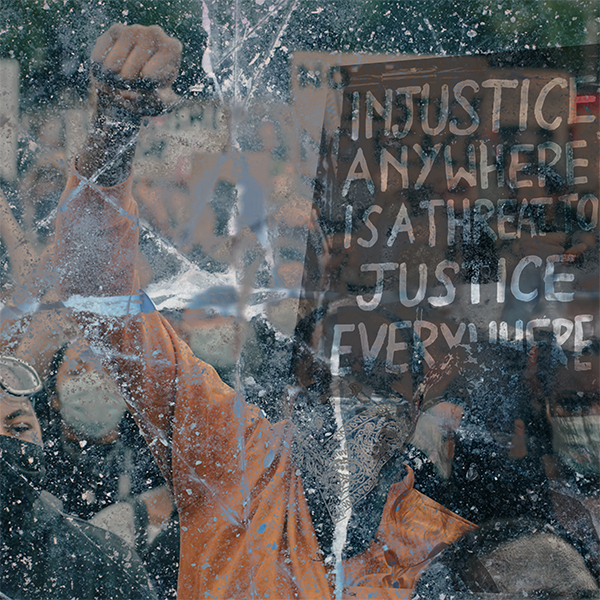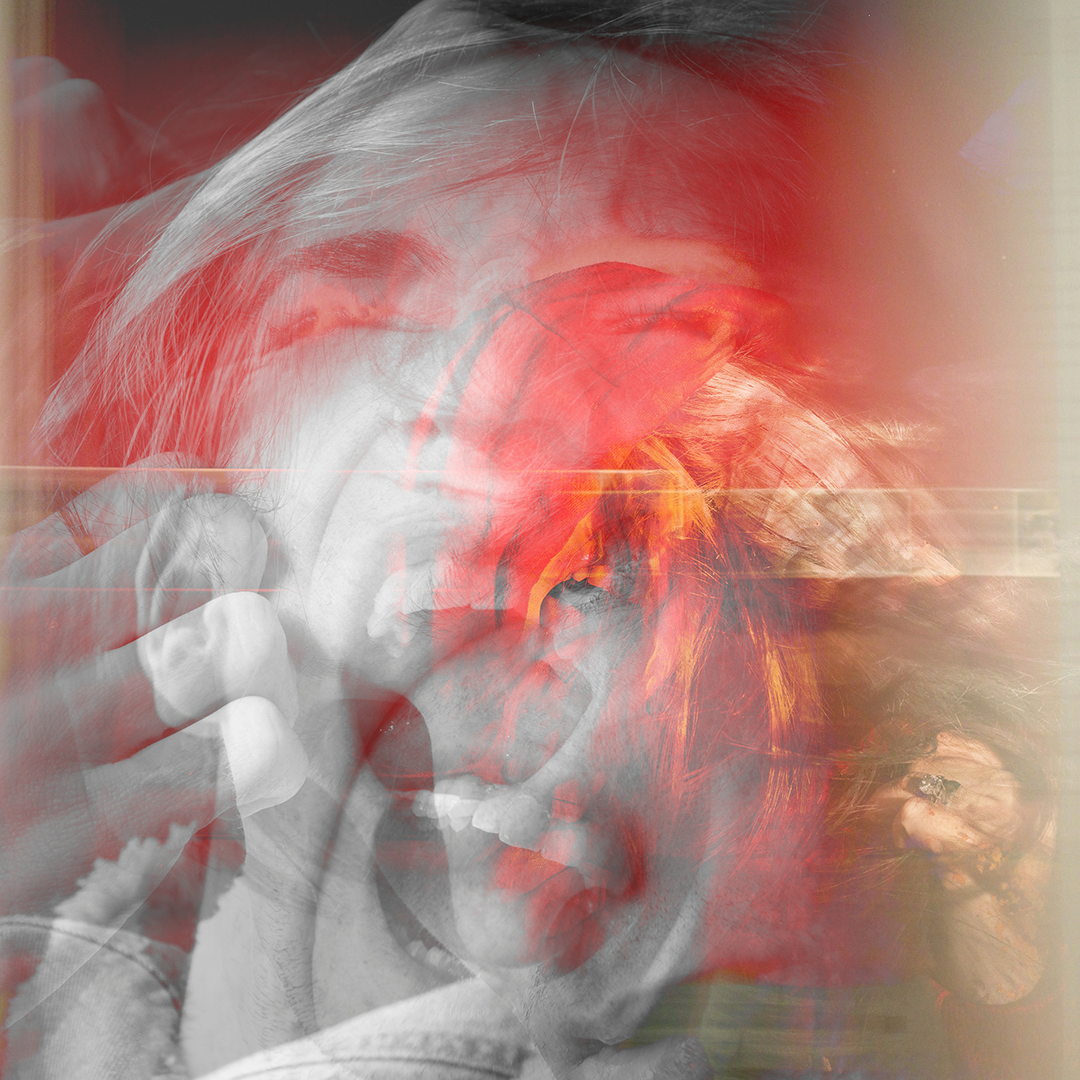Why Christians Are Incapable of Racial Healing
“Do they know you can talk about other things?” was the question my friend and partner in podcasting, John Alan Turner, asked. It stung me. I’d mentioned to John that I was headed for another speaking trip where I’d be talking about racial justice and reconciliation. For most of my ministry I tried to avoid speaking publicly about race because I feared what John had sensed, that once I started, I’d be locked in, pigeonholed.
As soon as John said it, my heart sank. “I wish I didn’t have to.”
The Wishing Well
I didn’t wish it away because of my personal fears of being typecast, but because I wish it weren’t necessary.
I wish it weren’t necessary for me to remind Christians about the roots of Miriam’s distaste for Moses’ wife, Zippora, or about the massacre leading to the Shibboleth gate keepers.
I wish vacation Bible schools moved past the big fish in Jonah’s story to the underlying nationalism and racism lying inside Jonah’s heart.
I wish people realized that after Jesus’ first sermon, the audience tried to kill him because our Lord highlighted that God worked with and through Gentiles.
I wish I didn’t have to remind people that the central problem in the first century church was a racial one—how are Jews and Gentiles going to get along?
And I really wish more people could see that the same scriptures that overtly portray the racism and xenophobia in the hearts of God’s people also provide the remedy.
I wish I didn’t have to speak to white Christians and tell them that believers are not served by denying or spurning the idea that some of us are racist and that the very Christianity we proclaim acknowledges that fact and gives us an avenue out of our bigotry. But that avenue starts with accepting racism as true.
The avenue out of our bigotry starts by accepting the reality of racism. @SeanPalmer Share on XThe Unspeakable Error
Too often the refrain from white Christians regarding racism and bigotry is that it doesn’t exist. If racism does exist, it either exists somewhere else—”no one I know is racist”—or it would go away if black and brown people would just quit talking about it. My brothers and sisters have become so racially discombobulated that an Italian friend recently commented to me that he was “as dark-skinned as any black person.” Such is the level of our racial incoherence that some have descended into pure lunacy.
It’s hard to look straight-faced into the shooting of unarmed black men, the public rise of the alt-right (which used to be called the Klan), and the recent events in Charlottesville and still sustain the belief that racism is a thing of the past.
At root, I believe, is that to our white Christian sisters and brothers naming racism is something like Beetlejuice: if they say it three times outloud it’ll appear and demand to be dealt with. Sorrowfully, the failure to name racism doesn’t keep us from dealing with bigotry. It actually gives bigotry a stronger hold on us.
What too many Christians fail to see is that while racism is a sin, it gains and maintains intensity because it is a power and principality. Racism is more than an impolite faux pas or socially unacceptable line-crossing that might cost you your job. Racism is an anti-God spiritual force that enlarges itself by hiding in silence and darkness. It is a yeast whose bread is denial. And by virtue of evil’s prevalence and power on Earth, racism is capable of taking root inside the human heart, whether we overtly choose it or not.
Racism is capable of taking root in our hearts regardless if we overtly choose it. @SeanPalmer Share on XThe Racism of Paul & Peter
This was the case with two heroes of the faith: Paul and Peter.
Paul steps into the pages of scripture as Saul, a man hellbent on destroying everyone proclaiming Jesus as Lord. Partly what it meant to make such a proclamation was the confession that the veil of the temple had been torn, bringing Jew and Gentile together. This was a hard concept for Paul to accept. But after he does, Paul travels much of the known world announcing that “God shows no favoritism (Romans 2:11).”
Dealing with lifelong nurtured racism was hard for Peter too. God sends Peter both a dream and a centurion named Cornelius to help him get the message. And what is Peter’s response to discovering he was wrong about Gentiles, about what God has made clean and unclean?
It is clear to me now that God plays no favorites, that God accepts every person whatever his or her culture or ethnic background, that God welcomes all who revere Him and do right. You already know that God sent a message to the people of Israel; it was a message of peace, peace through Jesus the Anointed—who is King of all people (Acts 10:34-36).
Denial or Repentance
The repeated response to the revelation of their own racism by the apostles was repentance. For many contemporary Christians our response is the opposite, denial. The American church has become completely blind to our negation of the gospel of Jesus so much so that we reject the essence of what Jesus came to do.
In Ephesians 2:14-16, Paul speaks explicitly about what the ministry, life, and death of Jesus were meant to accomplish:
He is the embodiment of our peace, sent once and for all to take down the great barrier of hatred and hostility that has divided us so that we can be one. He offered His body on the sacrificial altar to bring an end to the law’s ordinances and dictations that separated Jews from the outside nations. His desire was to create in His body one new humanity from the two opposing groups, thus creating peace. Effectively the cross becomes God’s means to kill off the hostility once and for all so that He is able to reconcile them both to God in this one new body.
Perhaps the reason we are loath and slow to acknowledge and deal with this undeniable and central teaching of scripture is because our nation was built and sustained by race-based slavery. According to Edward E. Baptist’s book The Half Has Never Been Told: Slavery and the Making of American Capitalism, by 1850 enslaved Africans were worth $1.3 billion, a full one-fifth of America’s wealth. Perhaps we cannot face racism because we cannot face the brutality which built our economy.
Perhaps we cannot face racism because we cannot face the brutality which built our economy. Share on XBut I think the problem is deeper and more spiritual.
Avoiding Confession
White Christians deny racism because white churches avoid confession.

Growing up in predominately white churches during my adolescence and having served them now for over twenty years, I can count on one hand the number of times I’ve witnessed people confess to sin. At my grandmother’s predominantly black church, it happened every week. And I’m not just talking about the socially-acceptable sins. Women and men confessed to affairs, stealing, and every other thing. In response they received welcome and healing from the community.
White churches, in my experience, prefer to keep things quiet. Yet by doing so, they aid sin’s desire to burrow underground and disease the root. This is why racism is denied. It is denied because nearly all sin is denied!
What are Christians who have supported racial inequities or who support political leaders who lack any care or regard for the image of God in others supposed to say when they witness events like Charlottesville?
When Christians are unformed by confession, the best we have to offer are “thoughts and prayers.” We cannot repent of our role because we have had no practice in repentance. It is no wonder people turn to the soothing medicine of the baseless talking points of our preferred newscasters. They make us feel good about our decisions. Confession makes us own those decisions.
Confession names our demons. It admits what we are hesitant to speak aloud. Confession forces us to stop hiding behind our false cultural narratives, our desire to be admired, and the image and brand management that so dominates our time and energy.
Confession acknowledges our sin (Daniel 9:3-12) and, it is also owed to the neighbor whom we’ve injured (Matthew 18:15). James, the brother of Jesus, teaches “So own up to your sins to one another and pray for one another. In the end, you may be healed (5:16).”
Perhaps the reason our nation is unhealed from the racial brutality and oppression on which she was founded is because we’ve have resisted the very paths that would lead us restoration. We will continue to see racial strife and injustice met with shoulder shrugs and condescending eye-rolls until we find the courage to repent, confess, and trust in God’s absolution.
Healing will not come by resisting the path that leads us to restoration. @SeanPalmer Share on XThis past weekend, as the news from Charlottesville cascaded across news channels, our community pushed against our tendency to side-step responsibility and own our part in the racial divide with this prayer.
Confession in response to violence in Charlottesville
(Mike Yager and Andrew Hill, Ecclesia Houston)
Celebrant:
Too often, we stand silent in the shadow of division, bigotry, and hatred in our midst. As we look upon the evil unfolding in Virginia, Lord, change our hearts to speak love and unity, boldly and ceaselessly in the face of darkness. For the ways that we have been complicit…
People:
God, be merciful to me, a sinner.
Celebrant:
The drums of war beat ever louder, humanity at odds with itself. Yet we are called to turn our swords into plowshares, Called to open doors into which strangers and aliens would be welcomed as family. For the ways we have walled off our homes and our lives….
People:
God, be merciful to me, a sinner.
Celebrant:
For the unique burdens that lay upon our hearts today, Lord hear our prayers.
(Silence) We humble ourselves, Lord, seeking your forgiveness.
People:
God, be merciful to me, a sinner.
Celebrant:
Brothers and sisters. Our Father of mercies, through the death and resurrection of his Son has reconciled the world to himself and sent the Holy Spirit among us for the forgiveness of sins. Receive pardon and grace. Lift your heads, and stand tall once more.
All:
Lamb of God, grant us your peace. Amen.
Only through confession, repentance, and absolution will the church and the nations of the world come to find healing and pardon. Until then, though, I suppose I’ll keep talking.



